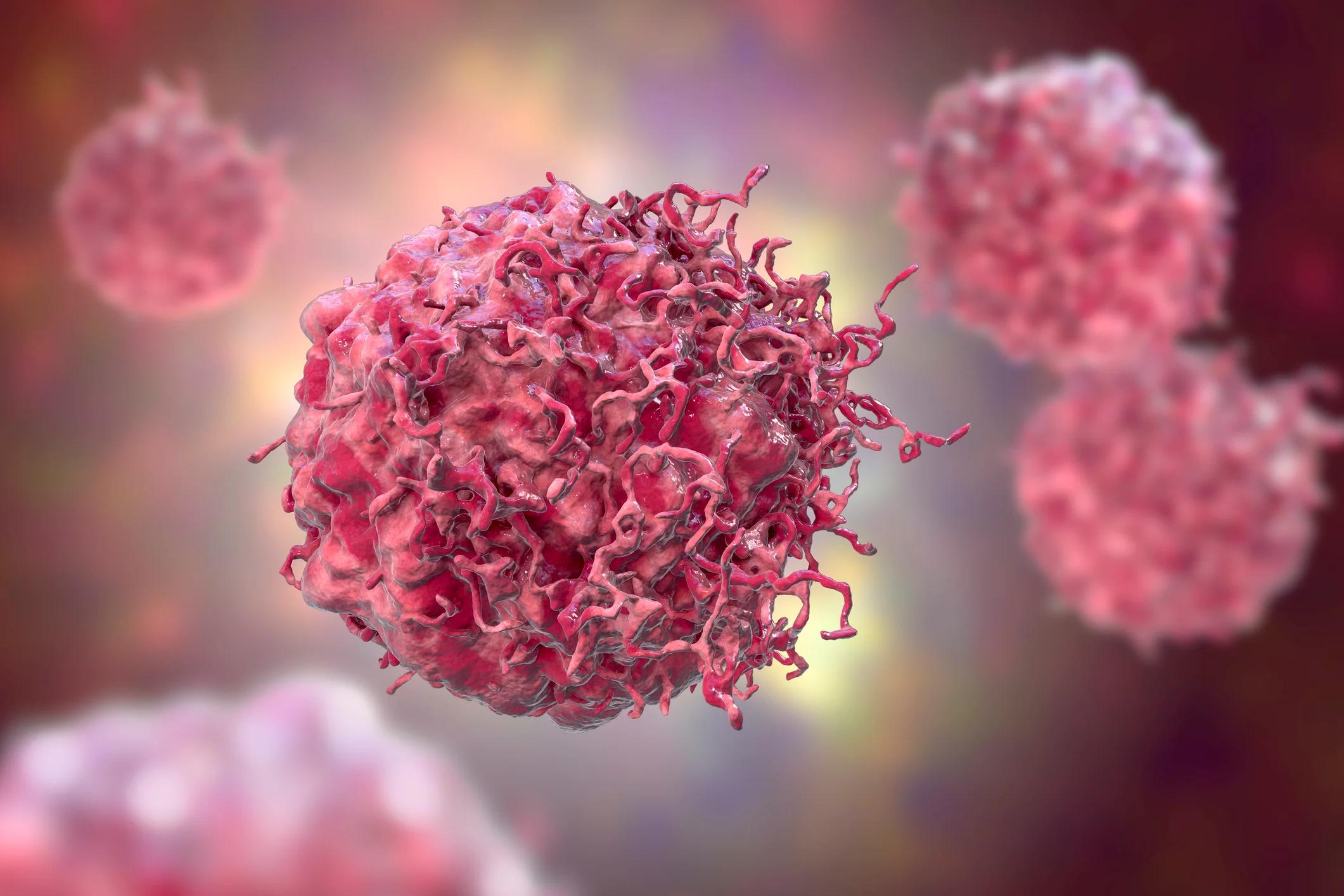KEY TAKEAWAYS
- The TROPION-LUNG01 phase 3 trial aimed to investigate the OS benefit and safety of Dato-DXd vs docetaxel in patients with NSCLC.
- The primary endpoints were to determine PFS & OS and the secondary endpoints were safety, PFS, and OS.
- Researchers observed a numerical OS improvement with Dato-DXd vs docetaxel, especially in nonsquamous NSCLC.
Patients with advanced non-small cell lung cancer (NSCLC) face limited treatment options after progressing on first-line (1L) therapies. Datopotamab deruxtecan (Dato-DXd), a novel antibody-drug conjugate targeting trophoblast cell surface antigen 2, is being evaluated across multiple solid tumors.
In the pivotal phase 3 TROPION-Lung01 trial (NCT04656652), which focused on patients with previously treated advanced NSCLC, Dato-DXd met 1 of its dual primary endpoints, demonstrating significantly improved progression-free survival (PFS) compared to docetaxel (hazard ratio [HR] 0.75; 95% CI, 0.62-0.91; P = 0.004). Superior efficacy was observed in patients with nonsquamous histology.
Jacob Sands and the team aimed to assess the overall survival benefit and safety profile of Dato-DXd compared to docetaxel in this patient population.
They performed an inclusive analysis in the global, phase 3, open-label TROPION-Lung01 study, where patients with advanced NSCLC were randomized in a 1:1 ratio to receive either Dato-DXd at 6 mg/kg or docetaxel at 75 mg/m² every 3 weeks (Q3W).
The primary endpoints included PFS assessed by blinded independent central review and overall survival (OS). Prespecified subgroup analyses were conducted for PFS and OS based on histology, particularly focusing on nonsquamous NSCLC. Safety assessments, including treatment-related adverse events (TRAEs), were secondary endpoints of the study.
About 299 and 305 patients were randomized to receive Dato-DXd or docetaxel, respectively. The baseline characteristics were balanced between the treatment arms. At the data cutoff of March 1, 2024, the median follow-up was 23.1 months for both groups.
The median overall survival (OS) was 12.9 months (95% CI, 11.0-13.9) for Dato-DXd compared to 11.8 months (95% CI, 10.1-12.8) for docetaxel (HR 0.94; 95% CI, 0.78-1.14; P=0.530) in the full analysis set. In the prespecified nonsquamous subgroup, median OS was numerically longer with Dato-DXd at 14.6 months (95% CI, 12.4-16.0) vs 12.3 months (95% CI, 10.7-14.0) with docetaxel (HR 0.84; 95% CI, 0.68-1.05).
The most common treatment-related adverse events (TRAEs) with Dato-DXd were stomatitis (47% vs 16% with docetaxel) and nausea (34% vs 17% with docetaxel), while the most frequent TRAEs with docetaxel were alopecia (35% vs 32% with Dato-DXd) and neutropenia (26% vs 5% with Dato-DXd). Grade ≥3 TRAEs and those leading to treatment discontinuation occurred more frequently with docetaxel than with Dato-DXd (42% vs 26% and 12% vs 8%, respectively).
The study concluded that while TROPION-Lung01 did not meet the second dual primary endpoint of OS, Dato-DXd demonstrated a numerical improvement in OS compared to docetaxel in the full NSCLC analysis set.
In the prespecified nonsquamous NSCLC subgroup, Dato-DXd showed a clinically meaningful trend towards prolonged OS. The overall safety and efficacy profile of Dato-DXd supports its potential as a new therapeutic option for patients with nonsquamous NSCLC who are eligible for subsequent therapy.
The trial is sponsored by Daiichi Sankyo.
Source: https://cattendee.abstractsonline.com/meeting/20598/presentation/3217
Clinical Trial: https://clinicaltrials.gov/study/NCT04656652
Sands J, Lisberg A, Okamoto I, et al. (2024). “Datopotamab Deruxtecan Vs Docetaxel in Patients with Non-Small Cell Lung Cancer: Final Overall Survival from TROPION-Lung01.” Presented at IASLC-WCLC 2024, September 8, 2024; Singapore.



